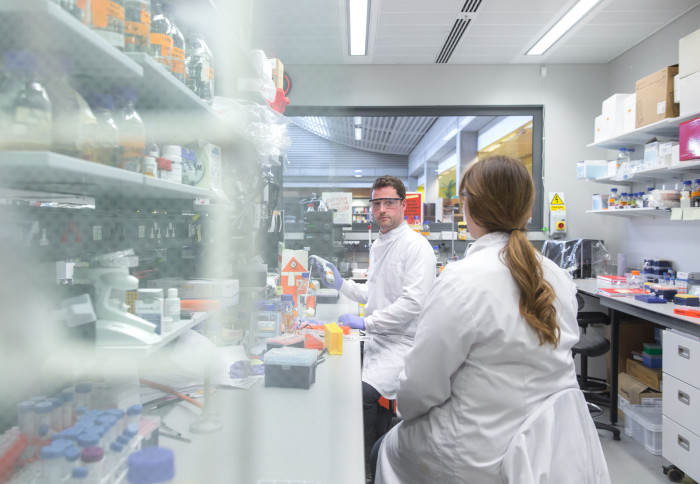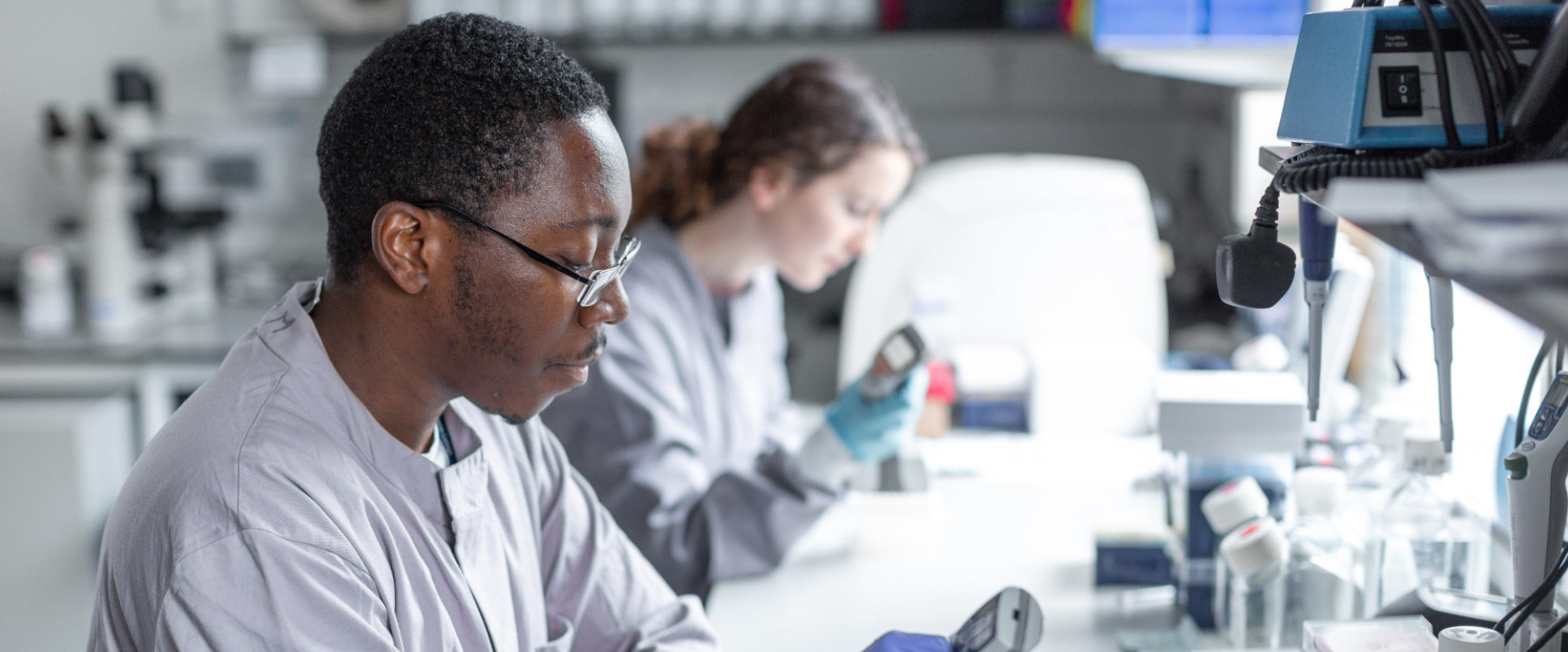Interdisciplinarity will help 'prepare for future pandemics'

Governments, scientists and universities need to prepare now for unknown infectious disease threats, argue Professors Jake Baum and Charles Bangham.
The vision of the lone scientist in the laboratory winning the war on infection is far from the modern reality Professors Jake Baum and Charles Bangham Co-Directors, Institute of Infection
The co-Directors of Imperial's new Institute of Infection write for the World Economic Forum that: "the world has scrambled to understand, contain and attack the SARS-CoV-2 virus in an unprecedented mobilisation of global science. Most of us believe we will conquer it. And yet we are all conscious that our collective guard was down when COVID-19 first emerged.
"We cannot afford to repeat this mistake. As institutions and nations take ‘pandemic preparedness’ seriously – and invest accordingly – policymakers, funders and taxpayers reasonably ask: which infection should we prepare for, and how? The answer lies in the concept of interdisciplinarity: we will need to bring together researchers from diverse disciplines."
Professors Baum and Bangham note that "Today, transformative discoveries rely more than ever on connections between technologies and original thinking. The concept of an RNA vaccine, for example, is not new; it had been around in laboratories and industry for many years."
Game-changing innovation
They write: "Interdisciplinarity is behind nearly all the game-changing innovation that is now in use in the current pandemic. Clinicians, natural scientists, engineering and computational scientists all cooperated to deliver the key components of COVID-19 pandemic control. And the need for workers from different fields to cooperate in this way will continue to grow."

However, "No single discipline, group, or technology can meet the challenges of understanding and combating future infections. Instead, it will be critical to break down barriers between traditionally separate disciplines such as mathematics, chemistry, biology, medicine, and engineering. We need to create forums where scientists, policy makers, technologists, and industry meet to share ideas and create innovations."
This is why Imperial launched the Institute of Infection: "to break down the barriers between medics, engineers, natural scientists and economists in the battle against infectious disease. By embedding interdisciplinarity into its fabric, the new Institute will incubate infection innovation, training the next generation of scientists to think differently about infection."
The full article can be read on the World Economic Forum's Agenda website.
Article text (excluding photos or graphics) © Imperial College London.
Photos and graphics subject to third party copyright used with permission or © Imperial College London.
Reporter
Andrew Scheuber
Communications Division